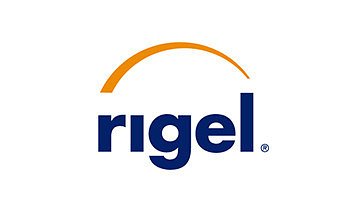
Long-Term Data Bolsters Rigel's REZLIDHIA in AML Battle
Five-year results from a Phase 2 trial show durable responses with REZLIDHIA in relapsed/refractory AML patients, even those previously treated with venetoclax. The data signals potential for expanded use and market growth.
Long-Term Data Bolsters Rigel's REZLIDHIA in AML Battle
NEW YORK, NY – November 15, 2025 – New five-year data published this week offers compelling evidence of the lasting efficacy and manageable safety profile of REZLIDHIA (olutasidenib), Rigel Pharmaceuticals’ treatment for relapsed or refractory acute myeloid leukemia (AML) with an IDH1 mutation. The findings, published in the Journal of Hematology & Oncology, highlight the potential for durable responses, even in patients who have failed other therapies, and reinforce the drug’s position in a competitive and evolving market.
Durable Responses and Challenging Cases
The pivotal Phase 2 trial data reveals that 35% of patients achieved a complete remission or complete remission with partial hematologic recovery, with a median duration of 25.3 months. Importantly, the study demonstrated activity even in a particularly difficult-to-treat population: patients who had previously been treated with venetoclax. For these patients, 33% achieved remission, with a median overall survival of 16.2 months. This success in pre-treated patients underscores REZLIDHIA’s potential to address a critical unmet need in AML treatment.
“The long-term data is encouraging, particularly when considering the challenging nature of AML and the limited treatment options available for patients with relapsed or refractory disease,” stated a leading hematologist, speaking anonymously. “To see durable responses extend out to five years is significant, and the fact that the drug maintains efficacy in patients who have progressed through other treatments is noteworthy.”
AML is a particularly aggressive form of cancer, and relapse rates are high. Patients with relapsed or refractory disease face limited options, highlighting the importance of new and effective therapies. IDH1 mutations are present in a significant subset of AML patients, making targeted therapies like REZLIDHIA a crucial component of the treatment landscape.
Navigating a Competitive Landscape
REZLIDHIA operates in a competitive niche, facing competition from Servier’s ivosidenib, another IDH1 inhibitor. While both drugs have demonstrated efficacy, recent data suggests that REZLIDHIA may offer some advantages. “The five-year data really solidifies REZLIDHIA’s position,” said a key opinion leader involved in the trial. “It’s not just about initial remission; it’s about how long those responses last.”
Rigel reported REZLIDHIA net product sales of $18.3 million in the most recent quarter, a 28% increase from the previous quarter, demonstrating growing market adoption. The company projects full-year revenue of $60 to $65 million, signaling continued growth potential. However, the company’s financial performance remains closely tied to the success of REZLIDHIA, as it is currently Rigel’s primary commercial product.
The competitive landscape is also evolving, with research focusing on combination therapies and novel treatment approaches. Rigel is actively exploring these avenues through collaborations with leading institutions like MD Anderson Cancer Center and the CONNECT network. These partnerships aim to evaluate REZLIDHIA in combination with other targeted therapies and immunotherapies, potentially unlocking even greater efficacy.
The Future of AML Treatment: Combination Therapies and Beyond
Rigel’s commitment to exploring combination therapies is a key aspect of its strategy. The company is currently conducting several clinical trials evaluating REZLIDHIA in combination with other agents, including co-targeted therapies designed to address multiple pathways involved in AML development. One ongoing trial at MD Anderson is evaluating REZLIDHIA in combination with therapies targeting other mutations commonly found in AML patients.
“The future of AML treatment is likely to involve combination therapies that address the unique genetic profile of each patient,” explained another expert in the field. “Targeting multiple pathways simultaneously can overcome resistance mechanisms and improve treatment outcomes.”
Beyond combination therapies, research is also focusing on the development of novel treatment approaches, such as immunotherapies and cell-based therapies. While these approaches are still in early stages of development, they hold the potential to revolutionize AML treatment. Rigel’s continued investment in research and collaboration will be crucial to navigating this evolving landscape and ensuring that patients have access to the most effective therapies available. The company’s recent commitment to further exploring co-targeted strategies suggests that they intend to maintain a competitive edge and drive innovation in the field.
